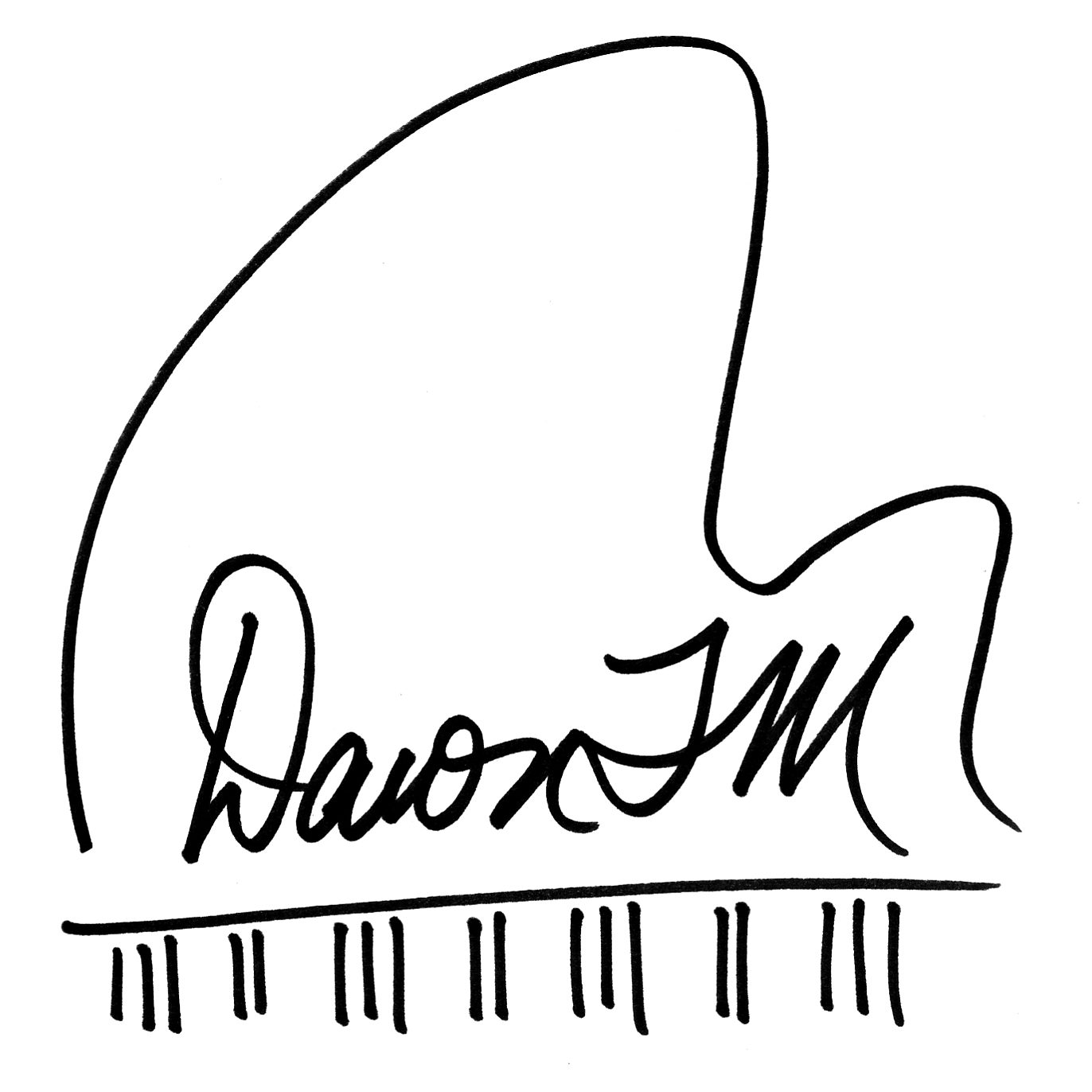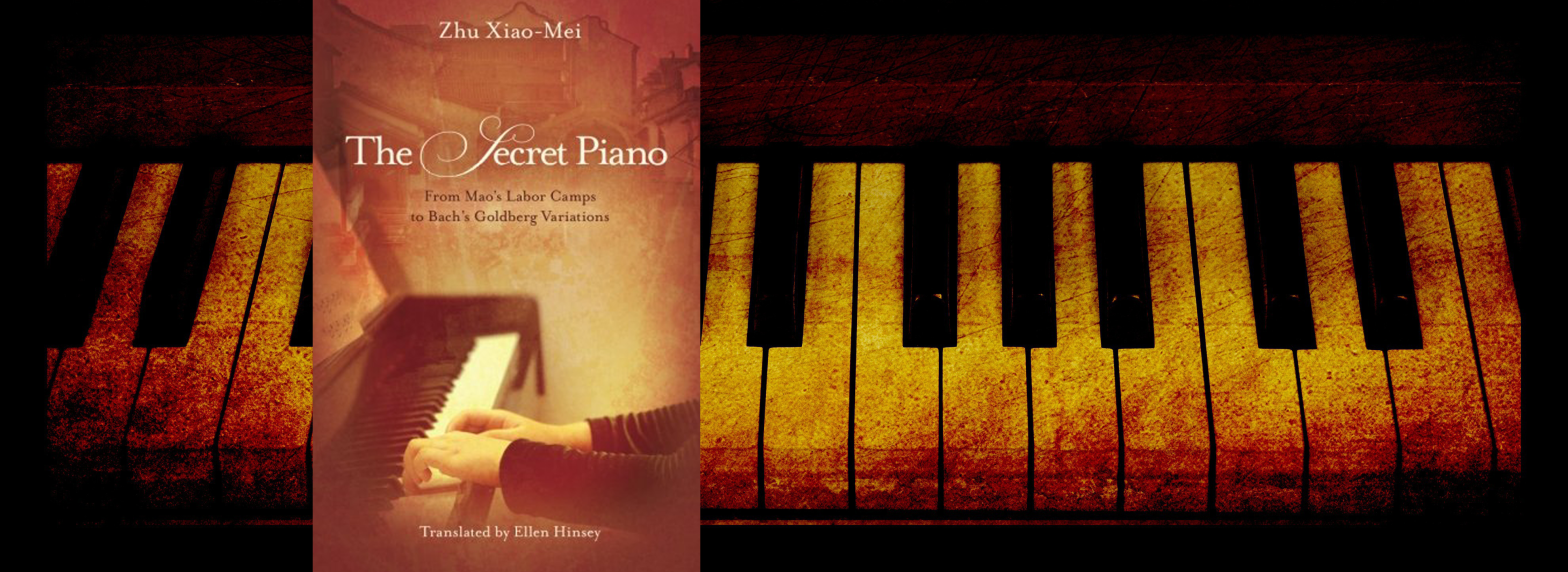I love autobiographies about pianists that overcome obstacles and find satisfaction and/or success with the piano later in life. This novel definitely fills those requirements. It is about a young girl who had been on a fast track for success at the conservatoire in China, but got derailed (and brainwashed) during the communist revolution. After working hard at an age too old for the typical pianist, along with an astonishing amount of generosity from many people, she finally achieves a reasonable success as a concert pianist and educator. In this book, Zhu is very passionate about J.S. Bach and the book is organized into 30 sections because there are thirty variations in Bach’s Goldberg Variations. I found her interpretations of the Bach’s Goldberg Variations, which you can find on “Spotify”, to sound very different to my ear than how they are typically played.
The title of the book, “The Secret Piano”, refers to her family piano, which she miraculously managed to ship to her final communist re-education camp.
I’ve read some other autobiographical books about the communist revolution. Mao’s Last Dancer was required reading for my daughter in her English course a few years ago, so I read it as well. The Secret Piano was unique for me in that Zhu Xiao-Mei
was in the Musical Conservatoire, old enough to witness the effects on the teacher/artists at the school and young enough to be “brainwashed” by the revolution. She experienced and participated in terrible atrocities. All the deaths and humiliations of the teachers in the Conservatoire were especially chilling. The destruction of manuscripts was heart-rending. Her denunciations of herself and others along with the lifelong repercussions of her own actions were fascinating. Once she escaped from China and reached the USA is not the end of the story, but merely the halfway point in the book.
Zhu received a lot of help along the way, but also had to persevere terrible obstacles. People helped her by opening their homes to her, but she also worked in many menial jobs to make enough money to survive. She auditioned and was accepted to the New England Conservatoire after reaching the age of 30. She realized that she wasn’t attaining her goal in the USA and wound up moving to France where she kept studying and practicing. Then through even more help and her own hard work, she received some professional breaks. The second half is a testament to persevering in the western world despite enormous obstacles. It also includes quite a lot of philosophy that she uses to help her survive, move forward, and finally shape her philosophy of music.
As I said before, this book is a type of novel that I especially enjoy. It has an interesting historical component that taught me more about China’s cultural revolution and it stars an older pianist achieving success when conventional wisdom predicts failure. She must be a remarkable artist and person to have achieved her success. The Secret Piano is a wonderful book and I can whole-heartedly recommend reading this book.
As a piano student and teacher, I also look at the book on another level. I like to see if there’s anything in the book that would not only help me in my playing, but also in teaching others to play the piano. Here’s some quotes that I especially liked:
“By constantly practicing, without casting about or forcing the matter, insight into life and how things worked emerged without my conscious awareness of it. This is the essence of Chinese philosophy: something that can be experienced without always needing to be explained. The Chinese path to understanding is quite different from that taken by Westerners. It is more intuitive, less strictly rational. The Chinese believe that many things do not need explanation because they are natural phenomena. Unlike their Western counterparts, who see understanding as a prerequisite to practice, Chinese people see practice as one way to achieve understanding. They are skeptical about any single-minded search for an ideal or truth…. Once I have analyzed the entire piece, I play it evenly and attentively: I never force it or try to grasp its meaning too quickly. I do this until I experience love for each passage and note, until I reach a state of natural and intuitive understanding.”
“It is increasingly clear to me that the thrust (line of reasoning or meaning) of a work is linked to its thrust (forward motion or direction). That the music – propelled forward and shaped by the life-giving bass notes – advances horizontally, and that this horizontality ultimately takes precedence over its verticality.”
“Draw your energy from your stomach.” …. “It comes from the breath, the place from which life and the spirit originate. Try to breathe correctly, and take care that your feet are placed solidly on the ground and that your diaphragm is steady. You’ll see that you are much less tense. If you are more flexible, in reality you will be stronger.”
“I also learned… not to struggle with my piano. It is an eternal friend, regardless of external events and the day’s fugitive moods. This in turn allows me to better explore its infinite resources, to get closer to the attack and sonority that I am seeking.”
“Before playing a work, I have discovered I need… to be peaceful, to empty my mind. To see down to the bottom of a lake, the water must be calm and still. The calmer the water, the farther down one can see. The exact same thing is true for the mind – the more tranquil and detached one is, the greater depths one can plumb.”
“It is better to deeply understand one field than to be acquainted with ten thousand.” – Chinese Proverb

